Uropanet & SportReTiNA
3D Printing Enables Start-Ups
“Without access to 3D printing, this idea would probably have stayed just that — an idea.”
Small and medium-sized enterprises (SMEs) as well as micro companies are often seen as the life-blood of thriving economies. As we start to recover from the ravages of Covid-19 many businesses are taking stock, without precise clarity concerning the actual state of the global economy.
One thing remains steadfast, however, and that is that the human drive to innovate will generate more new and good ideas and start-up companies will continue to emerge. Bringing good ideas to market is neither easy nor cheap but it can be done, and continues to happen as the growing number of start-up companies indicate.
3D printing is an enabling tool for many start-up companies — from the earliest conceptual ideas right through product development and even into production. 3D printing is a fast and efficient way of proving a concept: a good idea is one thing, translating it into a functional — and successful — product is entirely another. New products also take time to permeate through to market, and investment in tooling for high volumes of a product that has not secured considerable market share is often cost-prohibitive. Again, this is where 3D printing can provide a conduit platform that supports a cost-effective business plan.
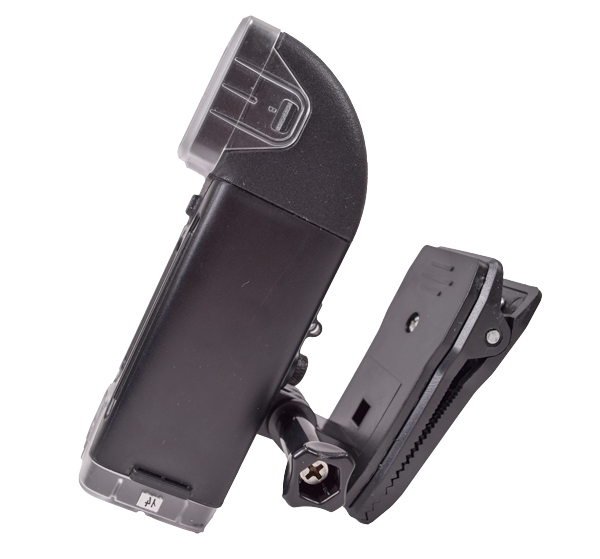
At 3DPRINTUK we often work with start-up companies on the development of their functional prototypes and early production parts and provide a fast, efficient, reliable, and cost-effective service that enables them to do what they do best — innovate!
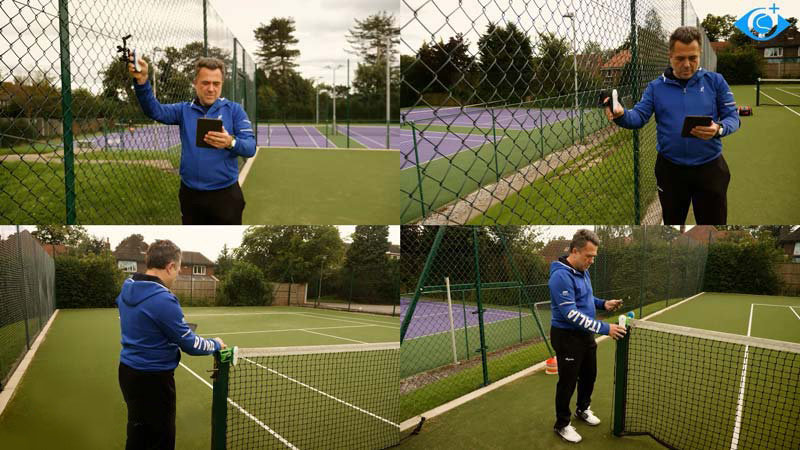
A Case in Point
One such start-up company that we have worked with recently is Uropanet, based in Sheffield, UK. The company’s founder and owner is Fabio Caparrelli, an ex-academic with a background in Electronic Engineering who is also a passionate tennis player and an LTA qualified coach.
It was in this latter role that Fabio identified a gap in the market for portable and affordable sport video analysis equipment. He told us: “Typically, full installations of data capture equipment cost thousands of pounds, and are only available to the coaches of elite — often professional — athletes. This sort of system is way out of the reach of most youth and grass-roots coaches. As a result, most lower-tier coaches resort to using their phones to capture and analyse the movement of their trainees, which means the footage is often shaky and only from one angle. Sometimes we can try using a tripod, but this still only provides footage from a single static/fixed position. Another common problem with portable camera devices such as a mobile phone is that the retrieval of the video footage can be very time consuming, which can put off the majority of coaches from including video analysis in their coaching workflow.”
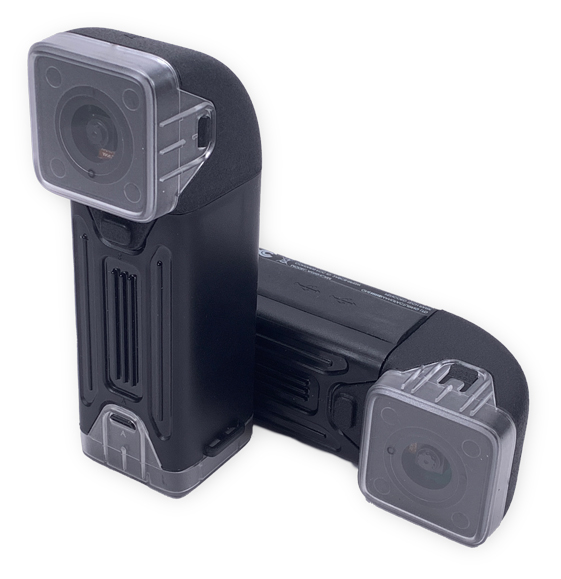
Having identified the issue, Fabio went on to conceive and develop SportReTiNA (Sport REal TIme aNAlysis) — a portable video recording toolkit that combines innovative hardware and software for synchronized, multiple view video capture and analysis of on-court (or pitch or track etc…) performance in real time or for later review. The SportReTiNA kit includes up to 6 small wireless cameras with multi-purpose attachments that can be quickly and easily placed in selected locations on a sport practice court to capture on-demand high frame rate video footage and high-resolution photos that are immediately available for playback on any portable wireless device.
The key to the adaptability of the SportReTiNA kit and it being so fast to set up and easy to use — set up takes 5 minutes — is the innovative design of the bespoke camera system. With support from a senior product designer from Sheffield Hallam University, Fabio was able to achieve an optimal design configuration, through a number of iterations which were 3D printed. However, due to the required geometries and the need to attach seamlessly to the camera housing (sourced from a supplier in Wales), the only possible way to produce the final parts was via 3D printing. The curved attachment, which gives the finished product a “periscope” look, allows the camera module to be rotated by 90˚ and therefore better suited for being attached to fixtures such as wire fences and/or posts.
“I believe that 3D printing really does enable innovation to flow from start-up companies such as mine. Having access to industrial 3D printing processes, through services such as 3DPRINTUK, has allowed me to pursue this venture and reach commercialisation.”
Having identified the issue, Fabio went on to conceive and develop SportReTiNA (Sport REal TIme aNAlysis) — a portable video recording toolkit that combines innovative hardware and software for synchronized, multiple view video capture and analysis of on-court (or pitch or track etc…) performance in real time or for later review. The SportReTiNA kit includes up to 6 small wireless cameras with multi-purpose attachments that can be quickly and easily placed in selected locations on a sport practice court to capture on-demand high frame rate video footage and high-resolution photos that are immediately available for playback on any portable wireless device.
The key to the adaptability of the SportReTiNA kit and it being so fast to set up and easy to use — set up takes 5 minutes — is the innovative design of the bespoke camera system. With support from a senior product designer from Sheffield Hallam University, Fabio was able to achieve an optimal design configuration, through a number of iterations which were 3D printed. However, due to the required geometries and the need to attach seamlessly to the camera housing (sourced from a supplier in Wales), the only possible way to produce the final parts was via 3D printing. The curved attachment, which gives the finished product a “periscope” look, allows the camera module to be rotated by 90˚ and therefore better suited for being attached to fixtures such as wire fences and/or posts.
Fabio commented on how 3D printing enabled him to move forward with his idea and commercialize the SportReTiNA kit: “Without access to 3D printing, this idea would probably have stayed just that — an idea. The bespoke nature of some of the parts that were required to make the SportReTiNA kit fully functional and easy to use, including the tennis net post sleeve, meant that any other manufacturing option would have been cost-prohibitive. I explored a number of different manufacturing options for every component of the kit, and 3D printing was the only way I could move forward with the customized elements.”
“It is because of this that I believe that 3D printing really does enable innovation to flow from start-up companies such as mine. Having access to industrial 3D printing processes, through services such as 3DPRINTUK, has allowed me to pursue this venture and reach commercialisation.”
However, the customised attachments are not the only parts of the SporReTiNA kit that ended up with 3D printing being the most cost-effective manufacturing method. Other value-added components of the kit that were also produced via 3D printing by 3DPRINTUK include a small computer enclosure and a wearable device that holds a small PCB to wirelessly control the entire system. The size and nature of these parts hit the sweet spot for being ideal applications for low volume production with the process.
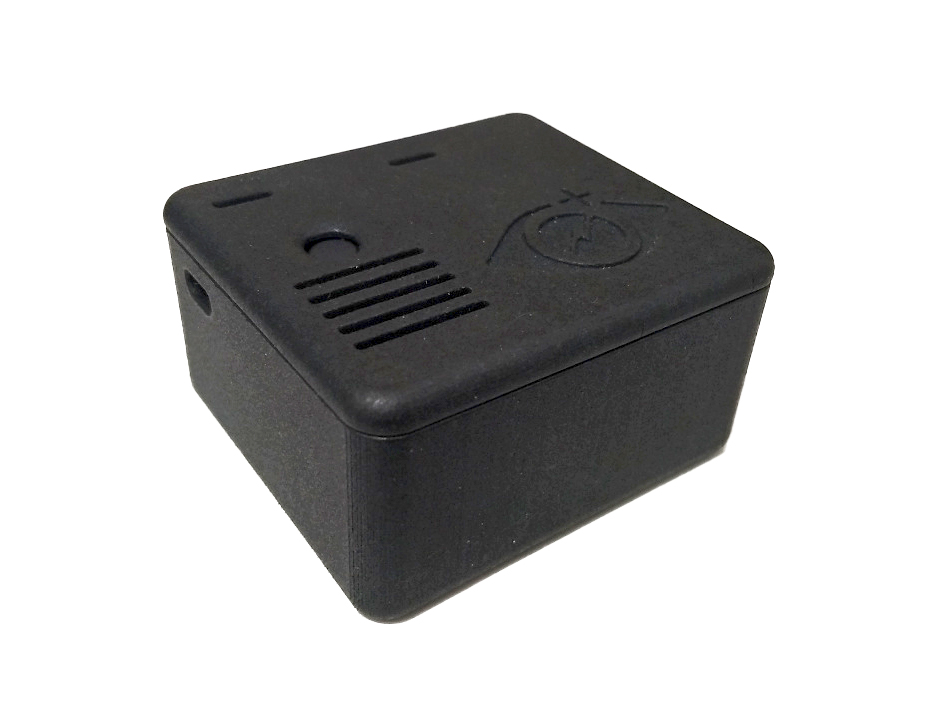
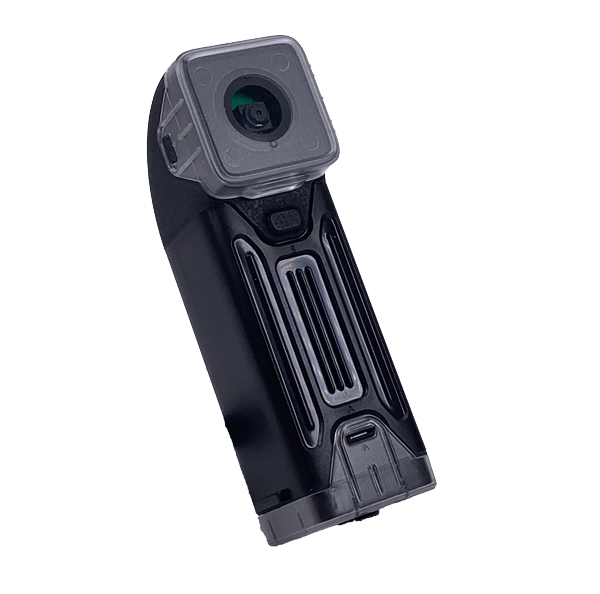
To get the look and feel of the parts that he required, Fabio turned to 3DPRINTUK and utilised their MultiJet Fusion (MJF) service to produce the parts in Nylon and dye them black. Once attached to the camera housing, Fabio was delighted that “it is virtually impossible to tell the difference between the injection moulded housing and the 3D printed attachment that allows for the adaptability and functionality of SporReTiNA.”
Fabio has been working hard to transition SporReTiNA from a working prototype to a saleable, manufacturable product. The first commercial sales for the kit have now been achieved with products heading out across the UK and into Italy. As would be expected, small volume production is the norm for a micro start-up, but the ability to use a batch production service as orders come in is ideal, and once again, 3DPRINTUK has been able to facilitate this, producing high quality parts in the volumes Fabio requires quickly and reliably.
